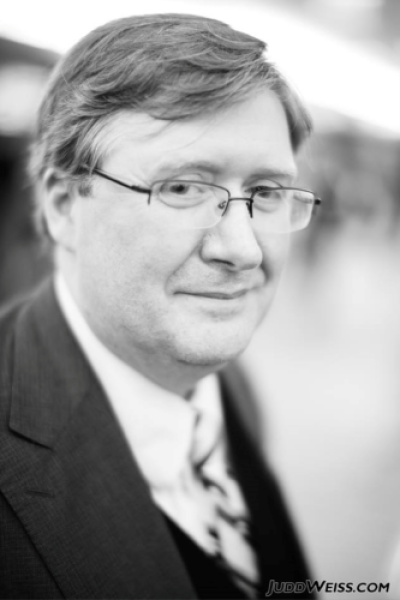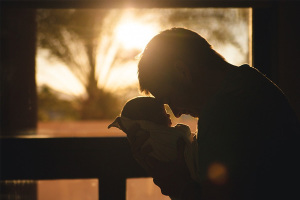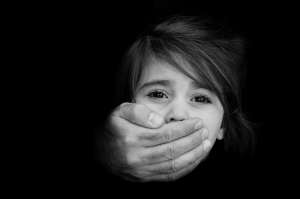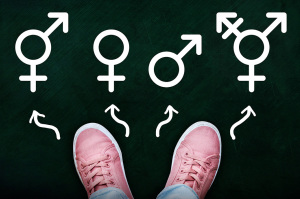Socialism's evolved relationship with religion
Editor's Note: This column was adapted from The Socialist Temptation.

You’ll remember that when I sketched out the socialist position on freedom I mentioned freedom of worship. Freedom of worship is not only a fundamental American liberty, but also very much part of our tradition. Not for nothing is it called “America’s first freedom.” Long before there was a Constitution, our ancestors came here to pursue freedom of worship. And while their ideas of religious liberty were both limited and very different from ours, they started an evolving tradition of increasing freedom of conscience, which helped America avoid the religious strife other Western nations suffered.[1]
Socialists’ attitude toward religion has also evolved. Early utopian socialists took religion as the basis for their beliefs. Marx, however, famously denigrated religion, calling it the “opiate of the masses,” and saying, “Religion is the sigh of the oppressed creature, the heart of a heartless world, and the soul of soulless conditions. . . . The abolition of religion as the illusory happiness of the people is the demand for their real happiness.”[2] Marx may not have disparaged religion entirely, but Lenin took the ball and ran with it, saying, “Atheism is a natural and inseparable part of Marxism, of the theory and practice of scientific socialism,” although he declined to make atheism a requirement of Communist Party membership.[3]
Atheism was part and parcel of the Cultural Revolution in China and Year Zero in Cambodia (in those countries, Buddhism and Islam were the main targets). Yet in other countries socialist revolutionaries tied themselves to the Cross or to Islam. In Latin America a whole new brand of Roman Catholic theology evolved to reconcile socialism with the Church — Liberation Theology (the current Pope, Francis, has strong links to this strain of Catholicism, which centers on a “preferential option for the poor” and tends to portray Christ as a revolutionary figure.[4])
In short, modern socialism has an ambivalent relationship with religion, especially organized religion. According to the statistical analysts at FiveThirtyEight (working from a survey conducted by the Public Religion Research Institute), Americans who are not religious “are 10 percent more socialist, on average, than religious Americans,” with the gap greater among older people than young (young people are more likely not to be religious regardless of politics).[5] Not being religious is also strongly correlated with the distinguishing features of the democratic socialists we have met — young, college educated, childless, living alone.
On the other hand, many of the poor and working-class constituencies that socialists court are much more religious. African American churches, for instance, have been major organizational forces in liberal politics for generations. Hispanic immigrants also tend to take religion seriously. Even white women are more religious than white men, according to most polls.
This puts socialists in a bind. Attacking religion itself is likely to put off people they need to attract. So modern American socialists tend to concentrate on one way to square this circle: the aggressive pursuit of separation of church and state.
Any separationist worth his salt will bend over backwards to say that all he wants to do is to ensure that the First Amendment’s strictures on religion are respected. State establishment of religion, he will contend, includes any attempt to prefer one religion over another, or over none at all. Thus it is fine to pray in school, but not fine for teachers or other school authorities to lead a prayer, or ask a student to do so. The courts have accepted this argument. As David French notes, “In a series of shocking Supreme Court cases, a progressive court elite destroyed the Protestant public school and ruthlessly disentangled Protestant church and state. School prayers? Gone. Daily Bible reading? Gone. Recitations of the Lord’s Prayer? Gone. Prohibitions on teaching evolution? Gone. The Ten Commandments on school walls? Nope, no longer. In a roughly twenty-year span, the edifice of America’s Christian public educational establishment was nuked from orbit.”[6]
Many Americans, even religious ones, accept this now, though it was hotly debated when the courts were on their march through the classroom. Some teachers and school administrators, fearful of falling afoul of the new rules went further, essentially chilling religious activity among students at school.
But even that wasn’t enough. Separationists waged war against the dead, objecting to state-owned memorials in the shape of crosses. They attacked the unborn, challenging laws that attempted to protect babies in their mothers’ wombs as religiously inspired attacks on women’s right to choose. The laws are always depicted as the last step on the way to imposing the theocratic society depicted in The Handmaid’sTale, with young women reduced to servitude as nothing more than vessels to carry their masters’ children.
The latest wave of attacks is on small business owners who attempt to live their faith through their business. By means of “equal opportunity” jurisprudence and “public accommodation” laws, separationists sue business owners in an attempt to force them to bake cakes or arrange flowers for weddings whose validity the business owners do not recognize.
These laws were passed with good intentions, but something has gone badly wrong. Culture and tradition can give those who don’t fit in very bad experiences. A gay person’s life can be made a living hell by those who do not approve of his lifestyle. It is right that state or federal law attempts to prevent this from happening. As law professor Michael Greve has pointed out, the reason we have a federal government in the first place is to prevent local tyranny.[7]
But the live-and-let-live spirit of these laws is clearly being perverted by the separationists — to punish people of whose lifestyle they disapprove, all the while claiming that they are the victims. In the age of social media, they have a mob at their command, which can be activated by the use of a single hashtag. In days past, a gay boy might have found himself the victim of mob violence. Now a Christian baker might find herself the victim of “doxing,” with a dangerous crowd trespassing to threaten her in her own home.
The aggressive use of separation-of-church-and-state tactics is functionally the state promotion of atheism. It delegitimizes faith and drives it underground. And the religious communities who are the targets of socialist organizers are being played for fools. African-American pastors and Latino priests may be the last to be targeted, but they will be targeted.
In a socialist America, therefore, religion will almost certainly be drummed out of the public square. Politicians will not — unlike every previous generation of American politicians — appeal to religious morality. They’ll have to turn to something else instead.
1.See, for example, the language of the Massachusetts Body of Liberties, a constitution enacted in 1651: “If any man after legal conviction shall have or worship any other god, but the lord god, he shall be put to death.”
2.Karl Marx, Critique of Hegel’s Philosophy of Right, ed. Joseph O’Malley (Cambridge, Massachusetts: Cambridge University Press, 1970). First published in 1843.
3. Quoted in Samuel Gregg, “Reason, Faith, and the Struggle for Western Civilization,” (Washington, D.C.: Regnery, 2019); V. I. Lenin, “Socialism and Religion,” Novaya Zhizn 28, December 3, 1905, https://www.marxists.org/archive/lenin/works/1905/dec/03.htm.
4. This is not the place to go into Pope Francis’ complicated relationship with liberation theology, but it is safe to say that he is much more sympathetic to its arguments than either of his two immediate predecessors, who strongly condemned the theology involved.
5. Andrew R. Lewis and Paul A. Djupe, “Americans May Be Too Religious to Embrace Socialism,” FiveThirtyEight, March 10, 2016, https://fivethirtyeight.com/features/americans-may-be-tooreligious-to-embrace-socialism/.
6. David French, “Liberty Gained and Power Lost,” The Dispatch, January 10, 2020, https://thedispatch.com/p/liberty-gained-andpower-lost.
7. Michael Greve, The Upside Down Constitution (Cambridge, Massachusetts: Harvard University Press, 2012).
Iain Murray directs the Center for Economic Freedom at the Competitive Enterprise Institute in Washington, D.C., where he is vice president for strategy and a senior fellow. For the past fifteen years, he has written and lectured extensively on free markets and the environment, labor policy, finance, the EU, and trade. He tweets at @ismurray and is a contributing editor at InstaPundit.
A former civil servant in the United Kingdom, where he helped to privatize the railroad industry, Murray has lived in the United States since 1997 but remains a British citizen. He holds an M.B.A. from the University of London and an M.A. from the University of Oxford.



























